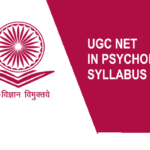The intersectionality of gender, poverty, disability, and migration brings to light a complex web of challenges that individuals face in diverse societies. This blog aims to delve into the intricate issues associated with cultural bias and discrimination, stigma, marginalization, social suffering, child abuse, and domestic violence within these contexts.
Gender Issues:
- Cultural Bias and Discrimination:
- Challenge: Gender bias and discrimination persist in many cultures, limiting opportunities for women and reinforcing harmful stereotypes.
- Impact: Unequal access to education, employment, and healthcare, hindering the overall development and well-being of women.
- Stigma and Marginalization:
- Challenge: Stigmatization of non-conforming gender identities and expressions perpetuates discrimination and marginalization.
- Impact: Individuals facing gender-based stigma may experience mental health challenges, reduced access to support services, and compromised well-being.
- Social Suffering:
- Challenge: Women often endure societal expectations and norms that may contribute to mental health issues, including anxiety and depression.
- Impact: The burden of conforming to traditional gender roles may lead to social suffering, affecting both the individual and the community.
- Child Abuse and Domestic Violence:
- Challenge: Gender-based violence, including child abuse and domestic violence, is prevalent globally, perpetuating cycles of trauma.
- Impact: Long-term physical and psychological consequences for victims, hindering healthy development and perpetuating a culture of violence.
Poverty Issues:
- Cultural Bias and Discrimination:
- Challenge: Discrimination based on socio-economic status can limit opportunities and perpetuate cycles of poverty.
- Impact: Limited access to education, healthcare, and employment opportunities, perpetuating generational poverty.
- Stigma and Marginalization:
- Challenge: Stigmatization of poverty can lead to social exclusion and hinder efforts to address systemic issues.
- Impact: Marginalized communities face barriers to resources, opportunities, and social integration, exacerbating poverty-related challenges.
- Social Suffering:
- Challenge: Living in poverty often entails daily struggles, exposing individuals and communities to social suffering.
- Impact: Mental health issues, increased vulnerability to diseases, and limited access to essential resources contribute to a cycle of suffering.
- Child Abuse and Domestic Violence:
- Challenge: Economic stressors can contribute to increased instances of child abuse and domestic violence within impoverished communities.
- Impact: Children and families in poverty may experience higher rates of violence, further exacerbating the challenges they face.
Disability Issues:
- Cultural Bias and Discrimination:
- Challenge: Societal attitudes toward disability may perpetuate stereotypes and discrimination.
- Impact: Limited access to education, employment, and public spaces, hindering the inclusion and participation of individuals with disabilities.
- Stigma and Marginalization:
- Challenge: Stigmatization of disability can lead to exclusion and social isolation.
- Impact: Limited opportunities for social interaction, reduced access to services, and compromised mental health for individuals with disabilities.
- Social Suffering:
- Challenge: Individuals with disabilities may face societal barriers that contribute to social suffering.
- Impact: Discrimination, lack of accessibility, and exclusion from social activities may lead to increased mental health challenges.
- Child Abuse and Domestic Violence:
- Challenge: Individuals with disabilities, especially children, may be more vulnerable to abuse due to power imbalances and neglect.
- Impact: Increased risk of maltreatment, exacerbating the challenges faced by individuals with disabilities and their families.
Migration Issues:
- Cultural Bias and Discrimination:
- Challenge: Migrants often face discrimination and xenophobia in host countries.
- Impact: Limited access to essential services, increased vulnerability to exploitation, and compromised mental health for migrant communities.
- Stigma and Marginalization:
- Challenge: Migrants may experience social exclusion and marginalization due to cultural differences.
- Impact: Reduced opportunities for integration, challenges in accessing support services, and mental health issues associated with isolation.
- Social Suffering:
- Challenge: Forced migration, in particular, can lead to profound social suffering as individuals and families grapple with loss, trauma, and uncertainty.
- Impact: Mental health challenges, post-traumatic stress, and challenges in adapting to new cultural contexts.
- Child Abuse and Domestic Violence:
- Challenge: Migrant families may face unique stressors that contribute to increased instances of child abuse and domestic violence.
- Impact: Heightened vulnerability for children and families, with limited access to protective services and support.
Conclusion:
The issues surrounding gender, poverty, disability, and migration intersect in complex ways, exposing individuals and communities to a myriad of challenges. Cultural bias and discrimination, stigma, marginalization, social suffering, child abuse, and domestic violence compound the difficulties faced by vulnerable populations. Addressing these issues requires a holistic and empathetic approach that acknowledges the interconnected nature of these challenges and works towards dismantling systemic barriers. By fostering inclusive societies, promoting awareness, and advocating for policies that prioritize social justice, we can contribute to a world where individuals are not defined by their gender, socio-economic status, abilities, or migration status, but rather empowered to lead fulfilling and dignified lives.








